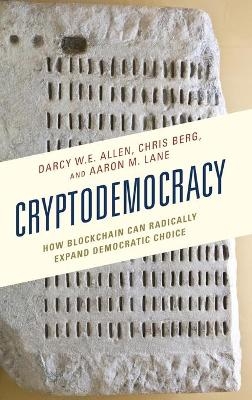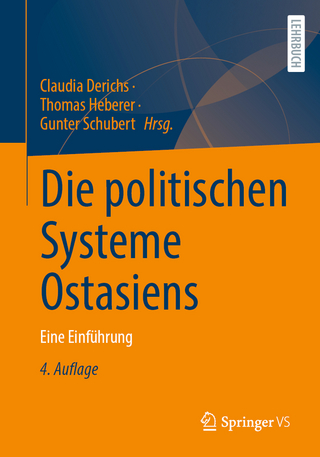
Cryptodemocracy
How Blockchain Can Radically Expand Democratic Choice
Seiten
2019
Lexington Books (Verlag)
978-1-4985-7963-6 (ISBN)
Lexington Books (Verlag)
978-1-4985-7963-6 (ISBN)
This book investigates the theoretical and practical implications of blockchain and other distributed ledger technologies for democratic decision making. The authors examine theoretical characteristics before exploring specific applications of cryptodemocracy in labor bargaining and corporate governance.
This book investigates the theoretical and practical implications of blockchain and other distributed ledger technologies for democratic decision making. What new structures of democracy does blockchain technology enable? A cryptodemocracy is cryptographically-secured collective choice infrastructure on which individuals coordinate their voting property rights. Drawing on economic and political theory, a cryptodemocracy is a more fluid and emergent form of collective choice. This book examines these theoretical characteristics before exploring specific applications of a cryptodemocracy in labor bargaining and corporate governance. The analysis of the characteristics of a more emergent and contractual democratic process has implications for a wide range of collective choice.
This book investigates the theoretical and practical implications of blockchain and other distributed ledger technologies for democratic decision making. What new structures of democracy does blockchain technology enable? A cryptodemocracy is cryptographically-secured collective choice infrastructure on which individuals coordinate their voting property rights. Drawing on economic and political theory, a cryptodemocracy is a more fluid and emergent form of collective choice. This book examines these theoretical characteristics before exploring specific applications of a cryptodemocracy in labor bargaining and corporate governance. The analysis of the characteristics of a more emergent and contractual democratic process has implications for a wide range of collective choice.
Darcy Allen is postdoctoral research fellow at the RMIT Blockchain Innovation Hub. Chris Berg is senior research fellow at the RMIT Blockchain Innovation Hub. Aaron M. Lane is affiliated researcher at the RMIT Blockchain Innovation Hub.
1.Introduction
2.Technologies of choosing
3.A framework for institutional collective choice
4.Delegating the vote
5.Bargaining and exchange in a cryptodemocracy
6.Cryptodemocratic corporate governance
7.Cryptodemocratic labor unions
8.The future of a cryptodemocracy
| Erscheinungsdatum | 10.05.2021 |
|---|---|
| Reihe/Serie | Polycentricity: Studies in Institutional Diversity and Voluntary Governance |
| Verlagsort | Lanham, MD |
| Sprache | englisch |
| Maße | 159 x 236 mm |
| Gewicht | 440 g |
| Themenwelt | Sozialwissenschaften ► Politik / Verwaltung ► Politische Systeme |
| ISBN-10 | 1-4985-7963-9 / 1498579639 |
| ISBN-13 | 978-1-4985-7963-6 / 9781498579636 |
| Zustand | Neuware |
| Informationen gemäß Produktsicherheitsverordnung (GPSR) | |
| Haben Sie eine Frage zum Produkt? |
Mehr entdecken
aus dem Bereich
aus dem Bereich
eine Einführung
Buch | Softcover (2023)
Springer VS (Verlag)
39,99 €


